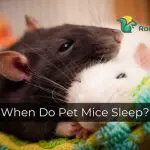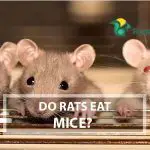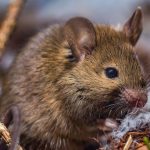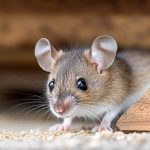What Do Mice Eat? Here’s Everything You Should Know
Mice have undoubtedly gained a bad reputation because of nibbling on food crumbs in houses. However, if you own a mouse, you don’t have to worry much about their diet!
So, what do mice eat? Mice are commonly known as omnivores, meaning they can survive by eating both animals and plants. They love having fresh fruits and vegetables, whole grains, seeds, nuts, small vertebrates, and invertebrates.
Understanding their diet will help you and your mice greatly if you’re a pet owner. Here, we will tell you more about a mouse’s diet, both a pet and a wild one. In addition, we will also inform you about baby mice’s diet.
What Do Mice Eat?
A well-balanced diet with correct nutrition is essential for any animal. Luckily, mice aren’t picky eaters, especially the wild ones. They eat whatever they find, which can be both beneficial and harmful to them. To begin with, you can feed them commercial pellets but that isn’t the only diet for your pet.
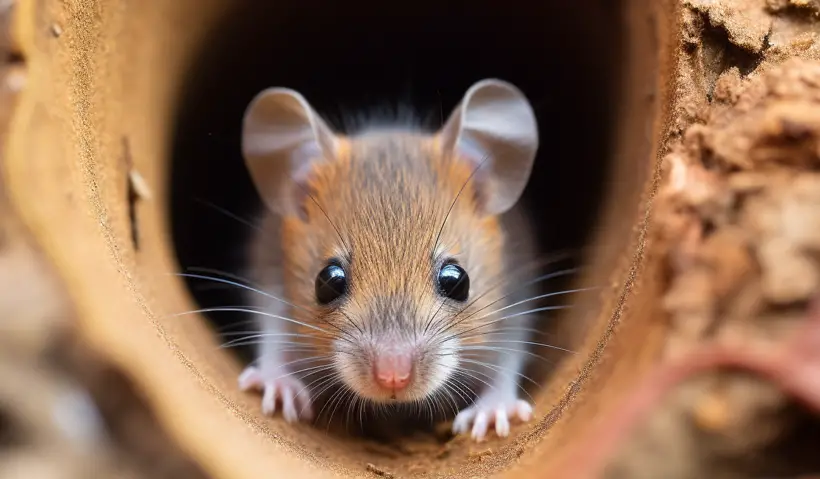
Here is a list of food mice that you can provide to your pet mouse.
Plant-based food for mice
Despite being omnivores, mice gravitate more toward a plant-based diet. When given a choice, your mouse will mostly pick seeds and grains like wheat, corn, oats, barley, etc. Moreover, mice also love legumes and nuts.
Additionally, they prefer eating carbohydrate-rich food. So, fresh fruits that are high in sugar are commonly eaten by mice. Moreover, like their owners, mice love indulging in sugary goodness like peanut butter or any hazelnut spread.

They also eat vegetables, which provide them with plenty of vitamins and fiber. However, not all fruits and veggies are to be eaten by mice. You need to be careful of which ones you’re serving based on the nutritional value of the fruits and veggies.
Meat-based food for mice
Pet mice aren’t a big fan of hunting for meat. However, they don’t miss out on it when the opportunity arises. They sometimes eat small insects like beetles, moths, and cockroaches, whereas wild mice eat a variety of insects and worms. Occasionally, wild mice will treat themselves to slugs and snails.
As for the meat we eat, you can serve it to your pet mouse too, but make sure they are cooked well. Raw meat isn’t safe for mice because of E. coli bacteria.

Interesting Fact: Mice will eat their feces, too, which helps to absorb a specific type of vitamin called B12 and folic acid.
What Fruits and Vegetables To Feed And Not To Feed To Mice?
Fruits and vegetables are a fantastic addition to a mouse’s diet. They can fulfill the mineral, vitamin, and fiber requirements of mice. Yet, not all fruits and vegetables are healthy for mice.

Fruits and vegetables that mice can eat:
- Apples
- Bananas
- Melons
- Pears
- peaches
- Cucumbers
- Carrots
- Zucchini
- Broccoli
- Peas
- Capsicum
Remove any seeds the fruits might have to avoid a choking hazard. They’re not only a choking hazard but also have high-fat content.
Fruits and vegetables that Mice can’t eat:
- Lemons
- Oranges
- Grapes/raisins
- Grapefruit
- Rhubarb
- Lettuce
- Avocado
- Garlic
- Onion
- Raw beans
These foods are potentially toxic to mice, so it’s best you altogether avoid them.
What Foods Are Toxic To Mice?
Previously, we’ve told you about the fruits and veggies to avoid, but what else should you avoid?

- Walnuts And Almonds
Next on the list are walnuts and almonds. Almonds are arsenic, which isn’t a problem for humans but can be hazardous for mice.
- Caffeine and Alcohol
Avoid caffeinated beverages such as coffee and tea. They’re toxic to mice and small portions of it can kill mice. Also, never give your mouse alcohol or any food cooked in alcohol.
- Highly Processed Food
Highly processed foods aren’t the best option. They will mess with your mouse’s stomach. So, avoid chips, processed wheat, candies, and chocolate. Your mouse may be attracted to chocolates and candies but you strictly need to keep them away.
- Spicy food
Don’t serve your mice anything that has too much spice. Not only will your mouse hate the taste but will also fall sick because of the heat.
- Stale Food
Of course, your mice will eat it if you serve them the leftovers, but that doesn’t mean it’s good for them. Stale food is just as bad for mice as for their owners. Moreover, replace your mice’s food every three to four hours to avoid feeding them stale food
What Does A Baby Mouse Eat?
For the first three to four weeks of their lives, baby mice only need their mother’s milk. If the mother isn’t around, you can feed the baby store-bought formula milk or simple goat milk, which is similar to mice milk.
You also can try regular cow milk or plant-based milk, but goat milk is the one we recommend.
Once old enough to eat solids, you can feed the baby mouse small amounts of nuts, seeds, fruits, vegetables, and even small insects. Make sure everything is cut into small chunks. You can serve them boiled or mashed vegetables like carrots to avoid choking hazards.
Wild baby mice that are old enough for solid prefer eating meat over insects. However, they can have puny insects, too, such as centipedes, young snails, cricket eggs, and larvae.
Here is a video of how to take care of a baby mouse:
Can I Feed My Mouse Human Food?
The aforementioned toxic foods should be strictly avoided for mice, whether you eat them or not.
Nevertheless, you can give your mouse the fruits and vegetables we’ve mentioned in your pet’s diet. Although, that’s not all you can serve. You can give them your dinner leftovers that aren’t too spicy.
Also, you can save some boiled pasta or plain rice for your mouse, they will love the carb.

Additionally, you can always treat them to some scrambled eggs. Make sure the eggs don’t have too much butter or spice. Bacon, beef jerky, peanut butter, bread crumbs, and cereal can be occasional treats for your mouse. Remember to control the portions! You don’t wanna make them sick by overfeeding them.
Do Mice Eat Cheese?
We have all grown up seeing the cartoon character Jerry and their love for cheese, but how accurate is that? Well, mice can eat cheese but it isn’t something they will intentionally overindulge in. When left with no other option, these mice will nibble on cheese to avoid starvation.

Yet, there are certain types of cheese that a mouse might prefer. Mice never have an attraction toward pungent smells, so they can’t stand sharp cheddar, muenster, Limburger, etc. Mild options like Gouda, Colby, or Mozzarella would be their standard choice.
However, excess cheese can mess up a mouse’s digestive tract and cause severe gastrointestinal issues. Moreover, cheese adds almost little to no nutritional value to a mouse’s diet. So, if you want to serve your house mouse some cheese, do it weekly and in minimal portions.
After learning about the dietary preferences of mice, it’s not uncommon to find them hiding within our homes, especially inside the walls. For insights on evicting these sneaky rodents, check out our guide on how to get rid of mice in the wall. If you’re considering professional help, discover how long it typically takes an exterminator to eliminate a mouse infestation.FAQ
We’ve told you everything a mouse can and can’t eat. Now, let’s get to some of the commonly asked questions for further details.
Q. What is a mouse’s favorite food?
Mice love anything sugary and rich in carbohydrates. However, of all the foods they love, peanut butter has to be their favorite.
Q. Is onion toxic to mice?
While onions may not kill mice, they indeed are harmful. In the long run, raw onion can make mice sick as they can’t tolerate the pungent smell of it.
Q. What taste do mice hate?
Most rodents hate vinegar. The sharp, pungent smell and taste of vinegar will help you to keep away any kind of mice.
Conclusion
Contrary to popular belief, mice don’t just eat cheese. Cheese isn’t even their favorite food. So, what do mice eat? Although they might eat just about anything, their preferred food group is carbohydrates. Carbohydrate-rich food such as peanut butter, bread crumbs, or sugary fruits are loved by mice.
Moreover, they can eat commercial pellets but seeds, nuts, grains, legumes, and fresh vegetables are more recommended. These foods keep their nutritional needs in check. Lastly, being true to their natural self, they devour insects and worms.

